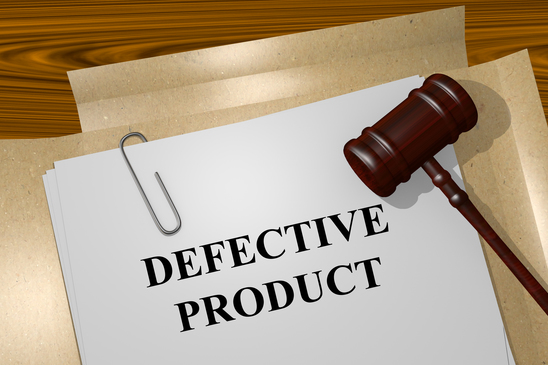CHICAGO, IL – Product liability claims are an essential part of consumer protection, ensuring that individuals have recourse and compensation when they sustain injuries or suffer damages due to defective products. Understanding the various types of product liability claims is critical for both consumers and manufacturers.
Breach of Warranty Claims
Expressed warranties are those which are explicitly stated and defined by the manufacturer or seller, often found in written contracts or promotional materials, while implied warranties are unspoken assurances that the product is fit for its intended purpose. For example, a consumer may purchase a new laptop with an expressed warranty guaranteeing its performance for one year, only to have the device malfunction after six months.
Breach of warranty claims serves as a prominent type of product liability claim which focuses on the failure of a product to meet the promises made by the manufacturer or seller. A breach of warranty occurs when a product doesn’t perform as expected or fails to meet the standards outlined in either an expressed or implied warranty.
To successfully pursue a breach of warranty claim entails meeting certain burdens of proof and legal requirements. The burden of proof lies with the injured party, who must demonstrate that a warranty existed, that the product didn’t meet said warranty and that they suffered damages as a direct result. Additionally, the injured party must generally prove they have used the product as intended and didn’t contribute to the defect through misuse or negligence.
Negligence Claims
Negligence claims form another significant category within product liability which focuses on the failure of a company to exercise reasonable care in the design, marketing or manufacturing of a product. A negligence claim arises when a company’s actions or lack thereof result in harm to a consumer. You must show the negligence claim is the concept of duty of care which holds companies responsible for ensuring their products are reasonably safe for the intended use.
Manufacturers must exercise caution and take appropriate measures to identify potential hazards during the product’s design and production phases. Companies also have the duty to provide clear instructions and adequate warnings regarding any potential risks associated with the use of their products.
To successfully pursue a negligence claim, several elements must be established, including:
- The injured party must demonstrate that the company owes a duty of care to the consumer.
- You must show that the company breached that duty by failing to meet the expected standard of care which can involve negligence in design defects, manufacturing or inadequate warnings.
- You must prove that the breach directly caused the injury or damage suffered by the consumer.
- The injured party must illustrate the extent of the damages caused.
Strict Liability Claims
Strict liability claims represent a unique category within product liability, where the focus shifts from proving negligence or breach of warranty to establishing the inherent danger or defect in a product. Under strict liability, a manufacturer or seller can be held responsible for injuries caused by a defective product regardless of their level of care or intent.
There is no requirement for the injured party to prove negligence or breach of warranty in a strict liability claim. Instead, a skilled product liability attorney must demonstrate that the product was unreasonably dangerous or defective and that the defect directly caused an injury or damage. This relieves the burden on the consumer, making it easier to pursue a claim against the responsible party.
Wholesales, retailers, manufacturers and other parties in the distribution chain may be held accountable in strict liability claims. Each party involved in bringing the defective product to the market can be held potentially liable for the harm caused.
For instance, strict liability claims can arise from cases including malfunctioning medical devices that cause harm to a patient. In this instance, the manufacturer may be held strictly liable for the injury that was caused.
The outcomes of strict liability claims vary based on the circumstances and evidence presented. In some cases, the injured party may be awarded compensation for medical expenses, lost wages, pain and suffering, and other damages. In other cases, the verdict may result in a product recall, forcing companies to take corrective actions to prevent further harm.
Contacting a Product Liability Attorney in Chicago, Illinois



